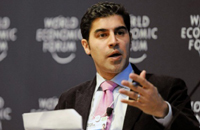Business ethics the right way to strike it rich
Once, more than 20 years ago, while prowling the capital's streets as a reporter for news leads, I was invited by a downtown communal public house to cover what it claimed to be an innovative project.
That was a period of widespread economic growth and blossoming entrepreneurship. I thought I had come across all kinds of crazy business ideas. Yet I was startled when the owners told me that they wanted to fold up their struggling old bathhouse business.
On its site, they planned to build a much more profitable mineral water factory, using the hot steamy spring that flowed into dingy pools. They needed media publicity to attract investment, ideally from a Western company with deep pockets, while trying to find ways to prove the water containing various minerals was drinkable.
But I doubted if any of them had drunk the water on a regular basis. They couldn't have possibly known the complex tests and criteria for contaminants to ensure the safety of bottled water, which was then available only in luxury hotels and restaurants. They were hoping the water would be sanctified by some health standard officials, and with investors' money and aggressive marketing they could rake in big bucks, quickly.
Fast forward to the unfolding public row over one of the biggest producers of bottled water in a market that today is much better regulated and crowded with players that claim to be socially responsible enough to distance themselves from frequent food scandals.
The company in trouble, Nongfu Spring, has allegedly failed to meet the criteria set by the government for tap water in terms of the amount of arsenic, cadmium and other chemicals allowed in its products.
It's common knowledge that because of environmental degradation, tap water in Chinese cities is not drinkable before being boiled. As a result, in recent years, bottled water has become a permanent fixture in most urban families and offices, spawning a market worth billions of dollars.
Nongfu Spring has been embroiled in safety scandals before. But quality worse than tap water? The latest bottled water scandal has touched a raw nerve of the nation and evoked my memories of the bathhouse entrepreneurs who were looking for ways to strike it rich in a chaotic, poorly regulated territory.
Ironically, even if all the allegations prove true, Nongfu Spring will still not be just another unscrupulous operator exploiting consumers without fulfilling any of its social responsibilities.
For example, the company donated millions of yuan when a major earthquake struck Sichuan, when thousands of passengers were stranded at a Guangzhou train station in Guangdong province because of snowstorms, and when tap water supply to poor residents in Wuxi, Jiangsu province, was snapped after a local ecological disaster.
But now Nongfu Spring is being grilled by the media and consumers because it has followed looser local safety standards instead of the much stringent national benchmark, as the fine print on its label shows.
In fact, most branded Chinese companies involved in food scares in recent years have been big, high-profile donors to charities.
However, their corporate volunteerism and philanthropy have been regarded as merely window dressing because they failed to ensure the safety of their consumers. Critics say such companies tried to protect themselves from public scrutiny with public shows of corporate social responsibility. And since these companies' success hinged on brand credibility, they collapsed after their products triggered public panic.
The moral is that basic business ethics, like regulatory compliance in the interest of consumers, should always be at the core of corporate social responsibility that precedes all other duties of a corporate citizen.
The bathhouse I visited two decades ago has now grown into a busy hotel complete with hot spring spa services, and its owners should be thankful that their plan to set up a bottled mineral water business did not materialize, or their lives could have been different for the worse.
The writer is editor-at-large of China Daily. E-mail: dr.baiping@chinadaily.com.cn
(China Daily 04/20/2013 page11)

























